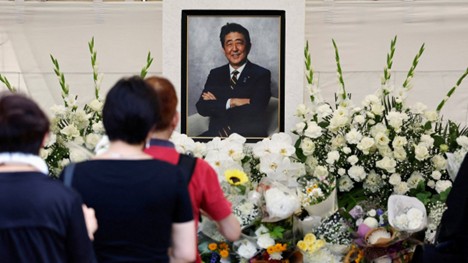Yamagami targeted Abe due to his grandfather’s church ties, conducted weapon tests, and faces murder and weapon charges
Tokyo
The trial of Tetsuya Yamagami, accused of assassinating former Japanese Prime Minister Shinzo Abe, began in Nara on Tuesday, three years after the shocking 2022 shooting. Yamagami, 45, pleaded guilty to killing Abe with a homemade gun during a campaign speech, admitting full responsibility before the Nara District Court.
According to Kyodo News, the court will hold several hearings through December, with a verdict expected on January 21, 2026. Investigators said Yamagami acted out of anger toward the Unification Church, which he blamed for his family’s financial ruin. His mother reportedly donated about 100 million yen (USD 650,000) to the group, pushing the family into debt.
Yamagami told authorities he targeted Abe because the late leader’s grandfather, Nobusuke Kishi, had helped bring the church to Japan in the 1950s. Before the attack, he conducted test firings of homemade weapons near facilities linked to the church. He faces charges of murder, property damage, and illegal weapon manufacturing.
The case has gripped Japan, with 727 people lining up outside the courthouse for just 32 public seats distributed by lottery. Witnesses expected to testify include Yamagami’s mother, a religious scholar, and a lawmaker present during the shooting.
Abe’s assassination on July 8, 2022, deeply shocked the nation and exposed controversial ties between the Unification Church and Japanese politicians, especially within Abe’s ruling Liberal Democratic Party. Nara, where the attack occurred, is also the home constituency of Prime Minister Sanae Takaichi, Abe’s political protégé and Japan’s first female premier.



